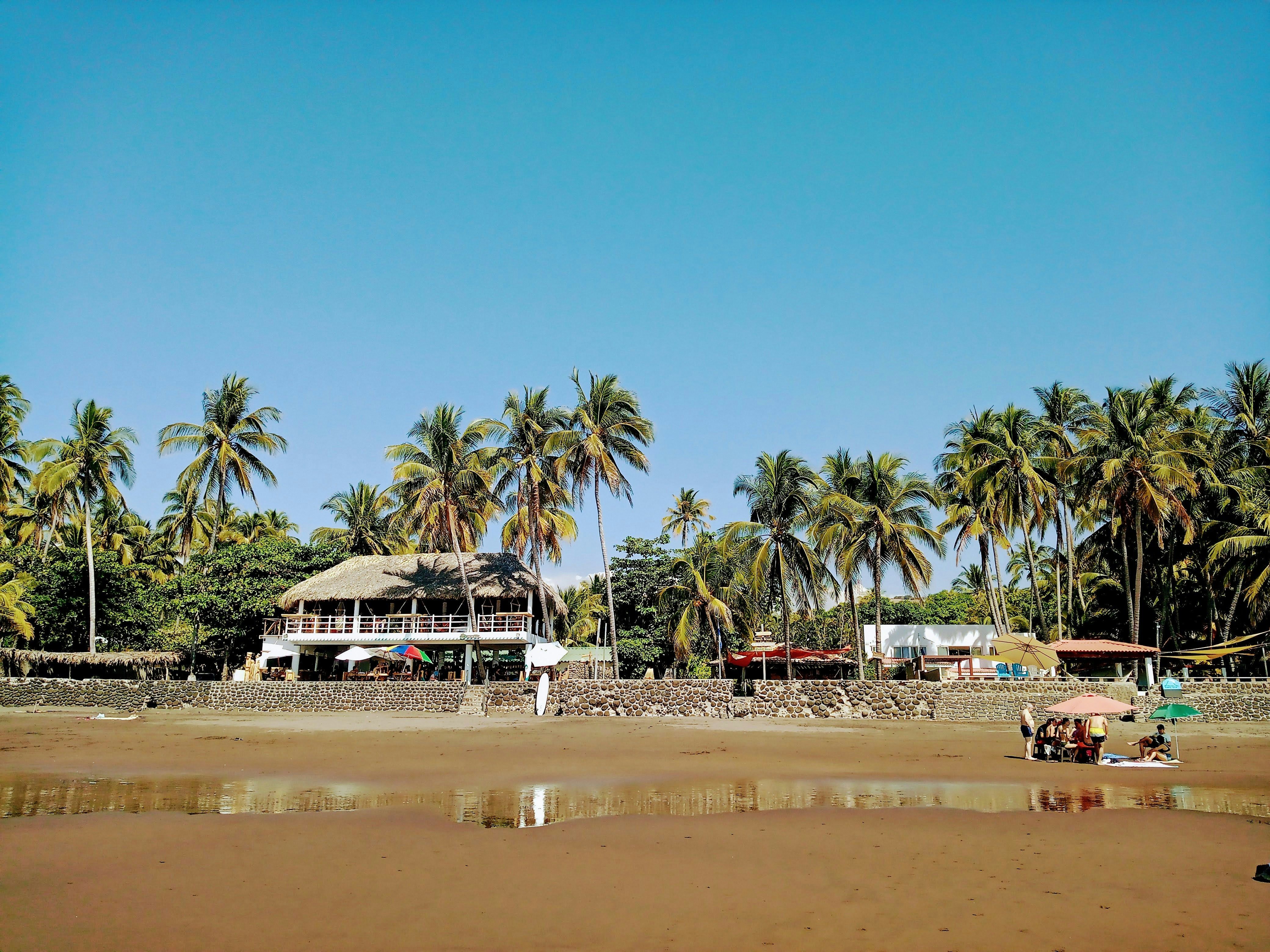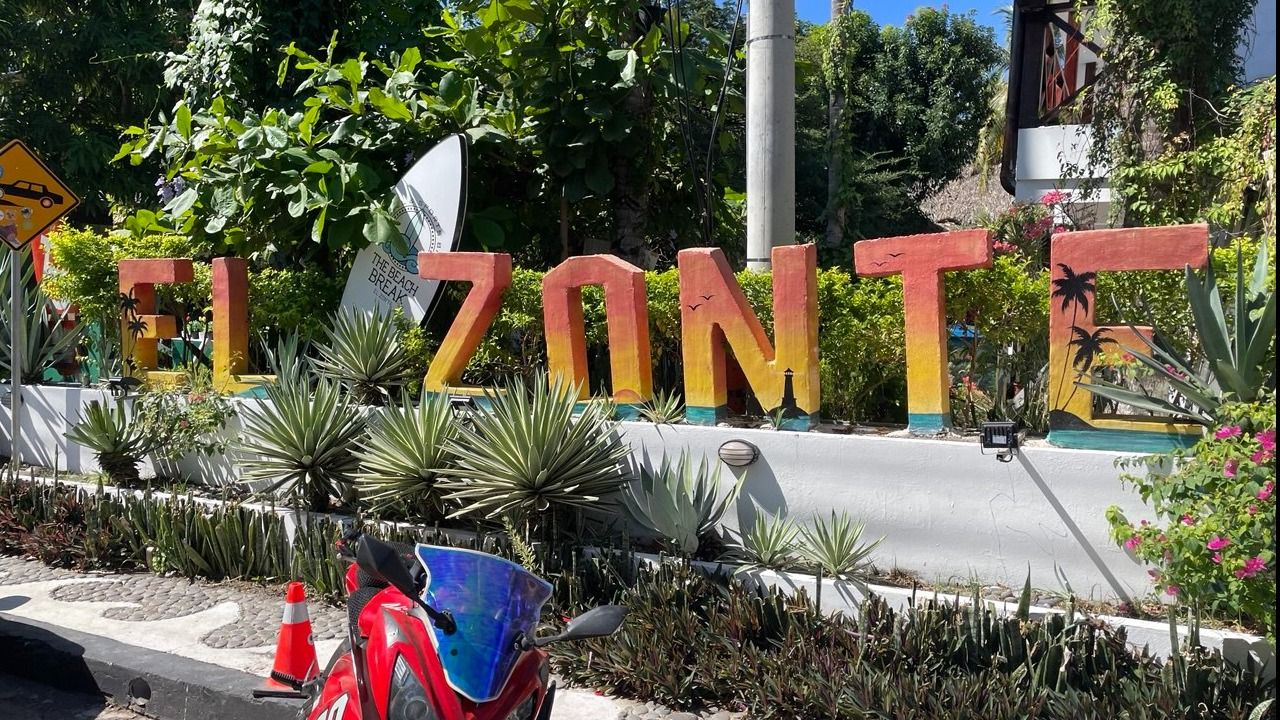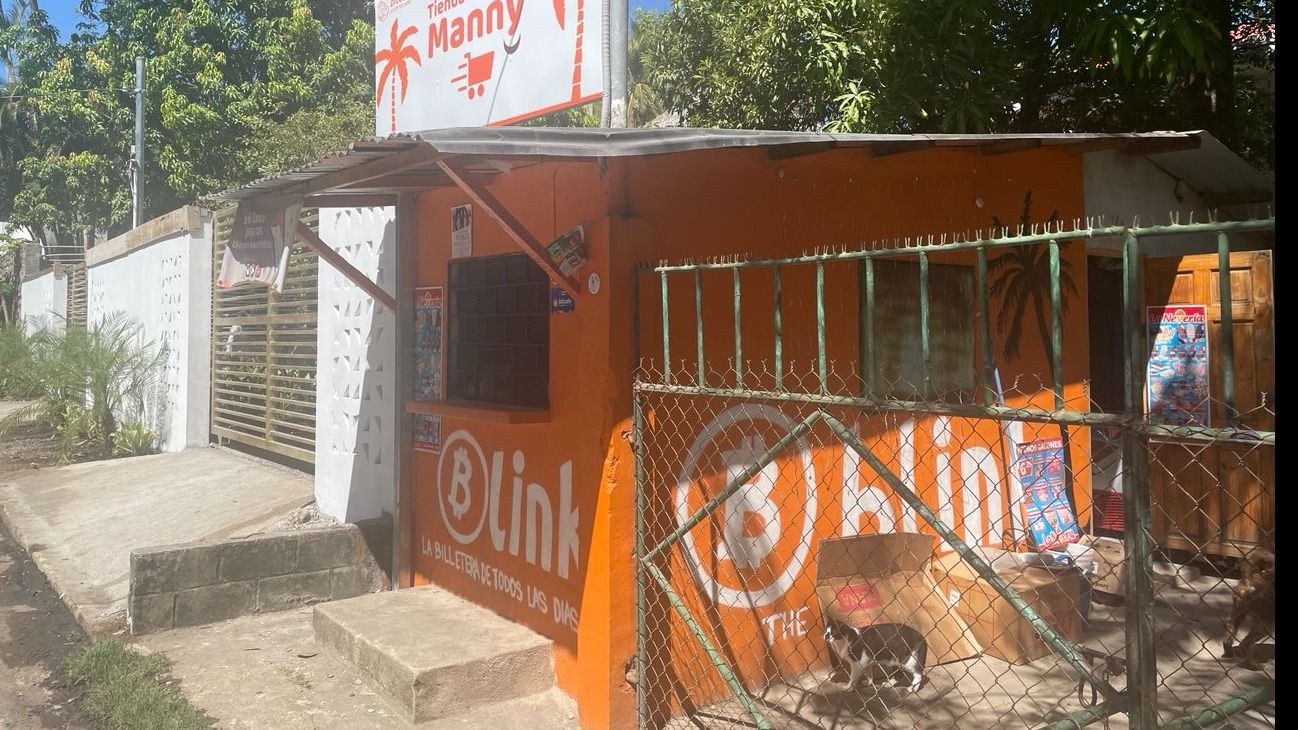“Bitcoin Beach: Surf’s Up, Poverty’s Down!”

What to Know:
- El Zonte: Where Bitcoin meets the waves 🌊
- Capital influx: More than just surfboards 🤑
- Bitcoin Beach: A tale of locals and expats 🤝
This article is part of a four-piece series on El Salvador. You can find the previous dispatch, a story on Bitcoin City, here.
The sun set like a giant orange emoji as I rolled into El Zonte, a surfing village that’s swapped its wax for blockchain. It was a late January afternoon, and the sky was a painter’s palette of pink and orange, turning the ocean into a golden Bitcoin pool. Coconut trees played peekaboo with the light, and surfers, tanned like leather wallets, carried their boards, jesting about the day’s catch—of waves, not fish.
El Zonte isn’t just another paradise; it’s the world’s first Bitcoin circular economy. Here, even the ice cream man accepts BTC. Finding someone who won’t take your satoshis is like finding a surfer who hates waves. This village of 3,000 has become a pilgrimage site for crypto enthusiasts, who flock here to live the Bitcoin dream.
This place is the birthplace of El Salvador’s Bitcoin revolution. President Nayib Bukele, presumably after a good surf, credited El Zonte for inspiring his 2021 Bitcoin legal tender move. I was there to see how this experiment was turning the tide.
What I found was a town in the throes of change—Salvadorans and expats, together, were coding the future. The residents, once burdened by poverty, now have opportunities and prospects, thanks to the blockchain.
I left with a newfound understanding: To grasp El Salvador’s Bitcoin project, you must first understand El Zonte’s story.
How it All Began
In El Zonte, every Bitcoin conversation leads to an American expat, Michael Peterson, a local legend. Without him, Bitcoin Beach might still be just a beach.

El Salvador is famous for its waves, and Peterson fell for them in 2005. He bought a house, thinking it was a winter retreat, but ended up moving in full-time, drawn to the country’s challenges like a surfer to a perfect wave.
“We were at a church in San Salvador, where people were tackling big issues like running children’s homes,” Peterson shared. “We decided to move here full-time in 2014, not to be on the frontlines, but to support those fighting the good fight.”
The Petersons built guest houses and organized conferences, offering a safe haven for those who had seen the dark side of life. In a place with a murder rate that once topped the charts, the Petersons were a beacon of hope.
Peterson’s youth outreach in Punta Mango and El Zonte was about teaching kids to dream. Some of those kids, like Roman Martínez and Fredis Molina, are now adults working with him at Bitcoin Beach, the initiative that brought Bitcoin to El Zonte’s shores.
“Mike showed us a new way to dream. That’s why our reality changed,” Martínez said.

Peterson’s work, plus his kids growing up with local children, made him a part of the community. Bitcoin Beach grew from these social projects when an anonymous donor gave a significant bitcoin donation in 2019.
Becoming Bitcoin Beach
Read More
- Best Crosshair Codes for Fragpunk
- Wuthering Waves: How to Unlock the Reyes Ruins
- Enigma Of Sepia Tier List & Reroll Guide
- How to Get Seal of Pilgrim in AI Limit
- Poppy Playtime Chapter 4 Walkthrough
- Hollow Era Private Server Codes [RELEASE]
- Lost Records Bloom & Rage Walkthrough – All Dialogue Options & Puzzle Solutions
- Gaming News: Video Game Workers Unite with New Union Effort
- Woman in Mask Quest Uncovered: Fish Locations in Wuthering Waves
- Kraken’s $1.5B NinjaTrader Deal: Is This the Future or Just a Fad?
2025-02-14 20:27